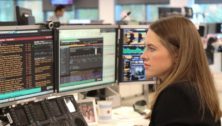Vanguard Publishes 2022 Economic and Market Outlook: ‘Global Markets Will Test Investors’ Discipline’

Vanguard has released its wide-ranging outlook and analysis on the future of the global economy and financial markets.
This year’s report, “Striking a better balance,” serves as a guidepost for what investors can expect from the global economic landscape in the years ahead. Vanguard’s economists explore key themes that will drive the direction of markets, including economic growth, the trajectory of global inflation, and policy decisions that will shape the next phase of the recovery.
“The road ahead for investors promises to be a challenging one,” said Joe Davis, global chief economist and co-author of the report. “Global markets will test investors’ discipline as they navigate the risks of unwinding monetary policy support, slower growth, and rising real rates.”
Policy accommodations
Challenges are likely to be most evident with the unwind of monetary policy, a critical factor in 2022 as central bankers assess a rapidly evolving economic landscape. Inflationary pressures have sharpened the focus on monetary policymakers as these pressures may drive changes in central bank communications and actions. Vanguard projects that central banks will largely try to avoid sharp and unexpected shifts in the timing of policy changes, particularly of policy rate increases, but that conditions will force them to act in 2022 and quite possibly by more than markets are anticipating.
Economic outlook
With the global economic recovery expected to continue in 2022, Vanguard economists foresee the low-hanging fruit of rebounding activity to give way to slower growth, regardless of supply-chain dynamics. In both the U.S. and the Euro area, Vanguard expects economic growth to normalize to four percent. In the U.K., Vanguard expects growth of about 5.5 percent, and in China, expectations are that growth will fall to about five percent.
Inflation
As outlined in the report, Vanguard expects labor markets will continue to tighten, with several major economies quickly approaching full employment. Vanguard estimates the cyclical effects of supply constraints will persist well into early 2022 and then normalize as the structural deflationary forces of technology and unemployment take hold again. These factors contribute to expectations that inflation will trend higher for some time before slowing in the second half of 2022.
Capital markets outlook
Vanguard’s long-term outlook for global asset returns for 2022 and beyond remains guarded, particularly for equities where valuations are high and low real interest rates continue to act as a strong gravitational pull on future returns. Importantly, investors should not fear a “lost decade” for U.S. stocks, but rather, a lower-return one. For fixed income, low interest rates mean that investors should expect lower returns. However, because rates have risen modestly since 2020, Vanguard’s outlook is commensurately higher.
Vanguard’s 10-year annualized return projections are as follows:
- Global equities: 5.2 percent – 7.2 percent
- U.S. equities: 2.3 percent – 4.3 percent
- Global bonds: 1.3 percent – 2.3 percent
- U.S. bonds: 1.4 percent – 2.4 percent
Globally, however, opportunities still exist. Given the differences in valuations between the U.S. and non-U.S. developed markets, Vanguard projects that international equities will outperform U.S. equities in the coming decades and value stocks will outperform growth in the U.S. Vanguard believes investors are best served in a broadly-diversified portfolio, inclusive of international equities. Vanguard has long counseled investors on the benefits of international diversification, as differing economies and markets produce returns that can vary from those of an investor’s domestic market.
“While the economic recovery is expected to continue through 2022, easy gains in growth from rebounding activity are behind us, and policy will replace health as the leading consideration for investors,” said Davis. “Despite a potential low-return environment, we are still expecting a positive premium for bearing equity risk. Investors should continue to focus on what they can control, and if they have the patience to weather potential periods of underperformance, we believe accepting some active risk offers the opportunity to offset low future returns.”
Connect With Your Community
Subscribe to stay informed!
"*" indicates required fields










































![95000-1023_ACJ_BannerAd[1]](https://vista.today/wp-content/uploads/2023/03/95000-1023_ACJ_BannerAd1.jpg)





